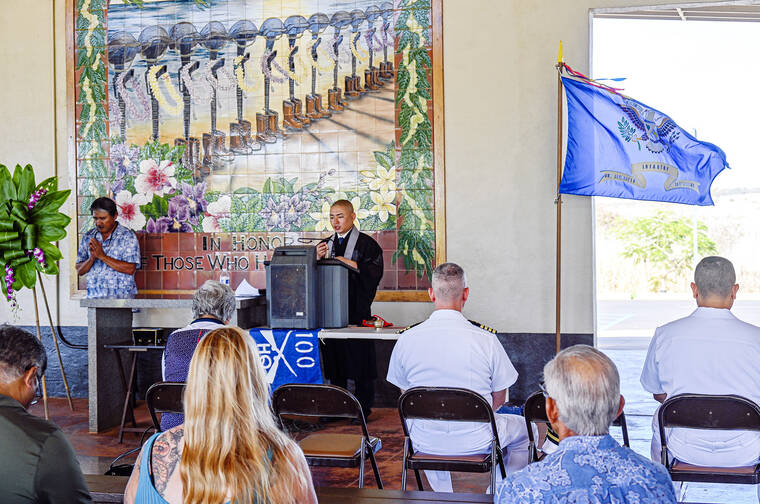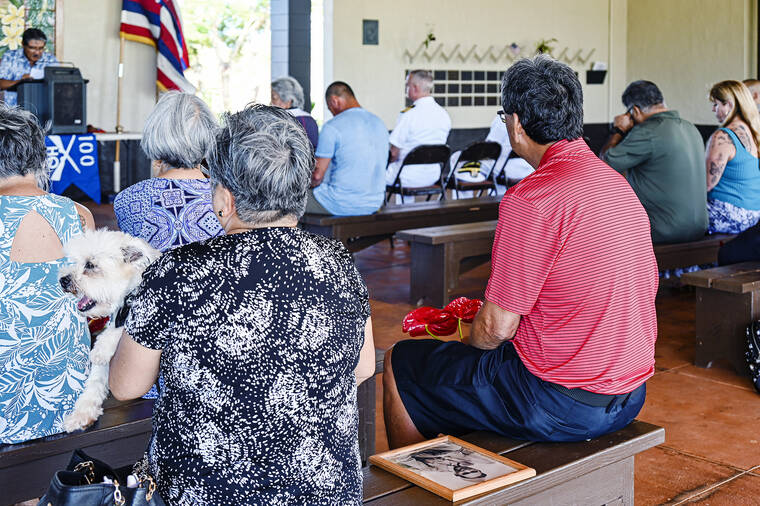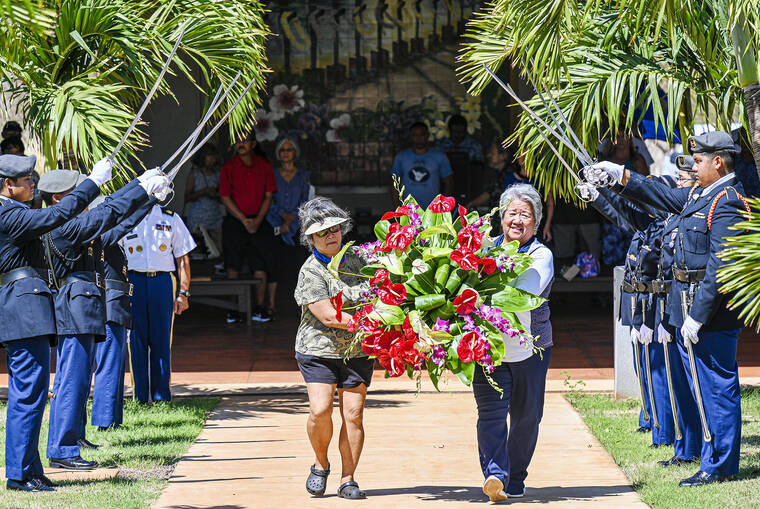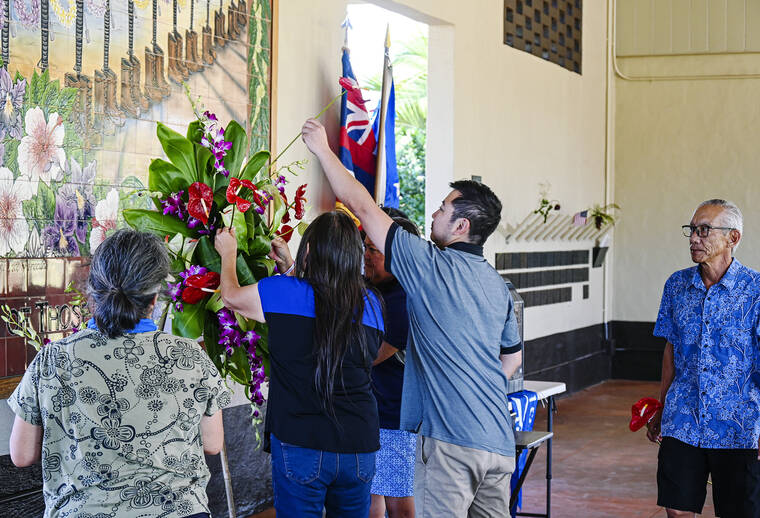HANAPEPE — The West Kaua‘i Club 100, named for veterans of the U.S. Army’s famed 100th Infantry Battalion, presented the 47th 100th Infantry Battalion Memorial Service Sunday at Kaua‘i Veterans Cemetery.
“Although there are no living veterans of the 100th Battalion, we had to do this,” said Ken Morikawa, the son of 100th Infantry Battalion’s Mugsy Morikawa, who was the last president of the West Kaua‘i Club 100. “We weren’t able to do this for the past two years because of the COVID-19 pandemic and shut down.”
In lieu of the traditional moment of silence, Morikawa read off names of 100th Infantry Battalion veterans, and allowed about two dozen descendants of veterans to complete a wreath honoring them.
Performing the military protocol, the Waimea High School JROTC color guard and its saber unit were dressed for the highest military protocol in the scorching Hanapepe sun. The “West Kaua‘i” designation of the Club 100 stems from the fact that most of the nisei, or second-generation Japanese, that enlisted to fight for the United States came from Kaua‘i’s Westside.
Capt. Brett Stevenson, commander of the U.S. Navy Pacific Missile Range Facility at Barking Sands, explained that he knew of the basic facts of the 100th Battalion as a child, but did not know the real story until he became an adult.
Faced with the terror and emotion following the attack on Pearl Harbor, the nisei enlisted as proof of their loyalty to America and to preserve the integrity of their families. They demonstrated the true spirit of aloha — buddies helping buddies — as they fought together until the end of World War II, Stevenson said.
Along this path, the 100th Infantry Battalion developed a history of performance, being known as “The Purple Heart Battalion” for the amount of casualties suffered during its campaigns in Europe.
The last Sunday in September has been designated as the day of the 100th Infantry Battalion Memorial Service because it is the closest date to when the 100th Battalion suffered its first killed in action after arriving in Europe in 1943.
“I spoke with the caretaker this morning,” Morikawa said. “He told me the microphone system hasn’t been used for more than two years. I’m glad we did this.”
•••
Dennis Fujimoto, staff writer and photographer, can be reached at 808-245-0453 or dfujimoto@thegardenisland.com.





